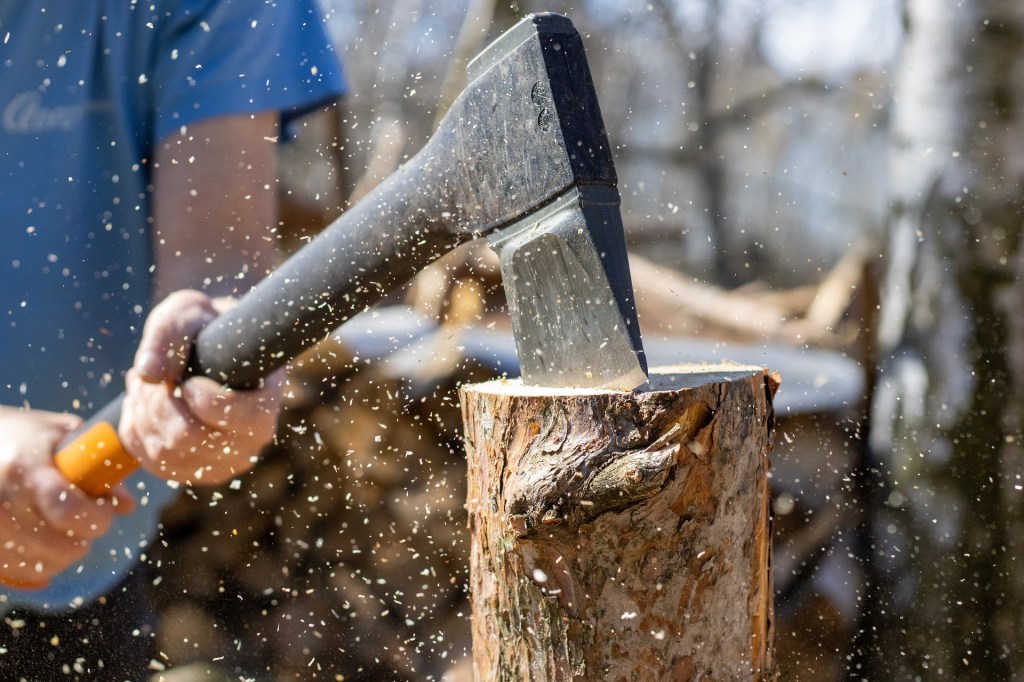The results are in and nature (i.e. God) wins again. A Bureau of Labor Statistics survey has found that lumberjacks and farmers are the happiest, least stressed, and most fulfilled workers, further evidencing that everything we need to be joyful and satisfied in this life is not manmade. Nor does it have much if anything in common with the prevailing culture.
A Washington Post analysis of the survey noted, “The most meaningful and happiness-inducing activities were religious and spiritual,” followed by “the second-happiest activity — sports, exercise and recreation.”
I am fond of harping about how a godless society is a miserable one. Ericka Andersen noted in USA Today last year how “broad-based evidence demonstrates that attendance at worship services is indispensable to a happy, generous, and flourishing society.” Yet despite resounding proof of religion’s benefits, American church attendance fell below 50 percent for the first time last year, according to Gallup.
The health benefits of time spent outdoors are also well-known (as is the zest for life inherent in the life of a lumberjack, as elucidated by Monty Python). As our attention spans continue to shrink, research shows that “going outdoors and spending time in nature can help to improve attention span in as little as twenty minutes.” Nature also reduces stress, boosts mood, and engages all the senses at once (I’m pretty sure sawdust is the best smell in the world). In my limited experience with virtual reality, the only senses that were engaged were my eyes and the part of my brain that induces motion sickness.
It’s the same with sports, exercise and recreation. For twelve or more of our formative years, we had it drilled into us to “eat healthy and exercise.” Physical education was mandatory in school. We know (excepting the blatantly false Food Pyramid) what to do to be our healthiest, happiest selves. But we’re “lookin’ for [joy] in all the wrong places,” ignoring the obvious needs of our species as they are no longer in front of our eyes.
As society becomes softer and more entitled and as we slog further from our ancestral roots, we’re more inclined to dismiss the simple, unchanging truths about mankind: that the earth was made for us, and we were made to be in and of the earth.
Technology isn’t all bad (though I lean more toward Luddism with each passing day), but it’s meant to enhance our existence, not consume it. What I find most intriguing about the Post’s reporting on the Labor Statistics study is that lumberjacks and those working in agriculture also reported the highest levels of pain on the job.
In a day and age in which much of life’s pursuits are aimed at keeping suffering to a minimum — you needn’t ever risk hunger pangs again with DoorDash, or endure a dull moment with social media — we are also more depressed, anxious, and unhappy than we’ve been in decades. Our life expectancy rates are down and dropping, too.
The thing is, you can’t improve on God’s design. The answers to all our human problems have existed for eternity, and no number of apps, “breakthrough” shortcut weight loss pills, Netflix binges, or instant gratification “likes” will ever replace the simple reality that the lumberjacks and farmers know better than anyone: that pain and suffering, hard work and sacrifice are necessary and fruitful when applied to a noble end.
And now to sound like an old grandpa: nothing beats fresh air and good old-fashioned manual labor. Gen Z might view trade jobs as icky (NPR reports the “application rate for young people seeking technical jobs — like plumbing, building and electrical work — dropped by 49 percent in 2022 compared to 2020”), but the benefits of this type of work abounds. Besides paying well generally, job satisfaction among tradespeople is extremely high (83 percent, per SCI Texas). There are obviously downsides to a physically demanding job, but to be so disconnected from the straightforward, hard outdoor work inherent in our heritage for too long has devastating effects on our nation, which is easy to see.
Of course, this is not to say that everyone needs to toss their keyboards out the window and go all George Washington on their nearest forest. But we ought to be incorporating much more outdoor manual labor in our daily lives. Walking in the woods — what the Japanese call shinrin-yoku, or “forest bathing” — mowing your own damn lawn, splitting some firewood, hunting, fishing, camping, growing vegetables in a garden, any sort of pioneer work that produces callouses — does wonders for the mind, body and soul. Mastering a task like one of these, particularly one that could further one’s survival, is the best feeling in the world. As the Center for Growth points out, physical labor provides an extra shot of endorphins that “feels like a natural high.”
Speaking of saving society, Piedmont Healthcare tells us that it also just so happens that lifting heavy things is “the best exercise to boost testosterone.” And who could argue we need a little more of that?

























